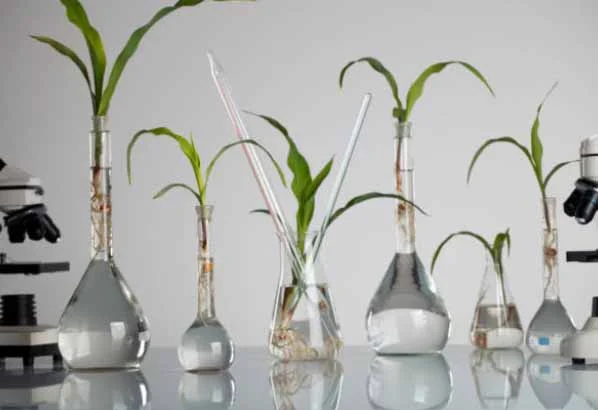Biotechnology’s Contributions to Sustainable Development
As the world grapples with the challenges brought forth by climate change, the search for sustainable energy solutions has become more critical than ever. In this regard, biotechnology has emerged as a promising field that offers innovative and eco-friendly approaches to meet our energy needs. By harnessing the power of biology, biotechnology has the potential to revolutionize how we generate, store, and utilize energy, paving the way towards a greener and more sustainable future.
The Power of Biomass: Transforming Waste into Renewable Energy
One of the most exciting contributions of biotechnology to sustainable energy development lies in the production of renewable energy from biomass. Biomass refers to any organic matter derived from plants, animals, or microorganisms. By utilizing biotechnological processes such as fermentation, anaerobic digestion, and enzymatic hydrolysis, biomass can be converted into valuable biofuels such as ethanol and biodiesel.
This transformative process empowers us to repurpose waste materials, such as agricultural residues, forestry by-products, and municipal solid waste, which would otherwise contribute to environmental pollution or occupy valuable space in landfills. By converting these waste materials into renewable energy sources, biotechnology helps to reduce greenhouse gas emissions and dependence on fossil fuels, taking us a step closer to a sustainable and carbon-neutral energy future.
Unlocking Nature’s Potential: Microorganisms as Biofactories
Another groundbreaking aspect of biotechnology’s contributions to sustainable energy lies in the use of microorganisms as biofactories. Microorganisms are incredibly diverse and possess unique metabolic capabilities that can be harnessed to produce valuable compounds with numerous applications in the energy sector.
One prime example is the production of biohydrogen, a clean and efficient source of energy. Certain microorganisms, such as bacteria and algae, can produce hydrogen gas through biological processes, known as fermentation and photosynthesis. By refining these processes and optimizing the efficiency of hydrogen production, biotechnologists aim to create sustainable and economically viable alternatives to conventional fossil fuel-based energy systems.
Bioelectrochemical Systems: Generating Energy from Nature’s Electric Potential
Biotechnology’s contributions to sustainable energy extend beyond biomass and microorganisms. Bioelectrochemical systems (BES) offer exciting possibilities for energy generation by tapping into the electric potential of living organisms.
In a BES, microorganisms interact with electrodes, transferring electrons and generating electrical energy in the process. This innovative approach enables the production of electricity or valuable chemicals from various sources, such as wastewater treatment plants, agricultural residues, and organic waste. Furthermore, BES can be employed in bioenergy storage, facilitating the conversion of renewable energy sources, such as solar or wind power, into storable forms, thus addressing the intermittent nature of these energy sources.
Conclusion
Biotechnology emerges as a beacon of hope in our quest for sustainable energy solutions. Through its innovative approaches, such as biomass conversion, biofactories, and bioelectrochemical systems, it offers tangible paths to a greener and more environmentally friendly future. By leveraging the power of biology, biotechnology allows us to reimagine our approach to energy generation and consumption, reducing our reliance on fossil fuels, mitigating climate change, and fostering a sustainable world for future generations to come.
With the potential to revolutionize the energy landscape, biotechnology’s contributions to sustainable development are undeniable. Embracing these advancements will not only lead to a cleaner and more sustainable environment, but also open up opportunities for economic growth and technological innovation. As we look towards the future, it is crucial to recognize and support the role of biotechnology in shaping a brighter, greener, and more sustainable tomorrow.

